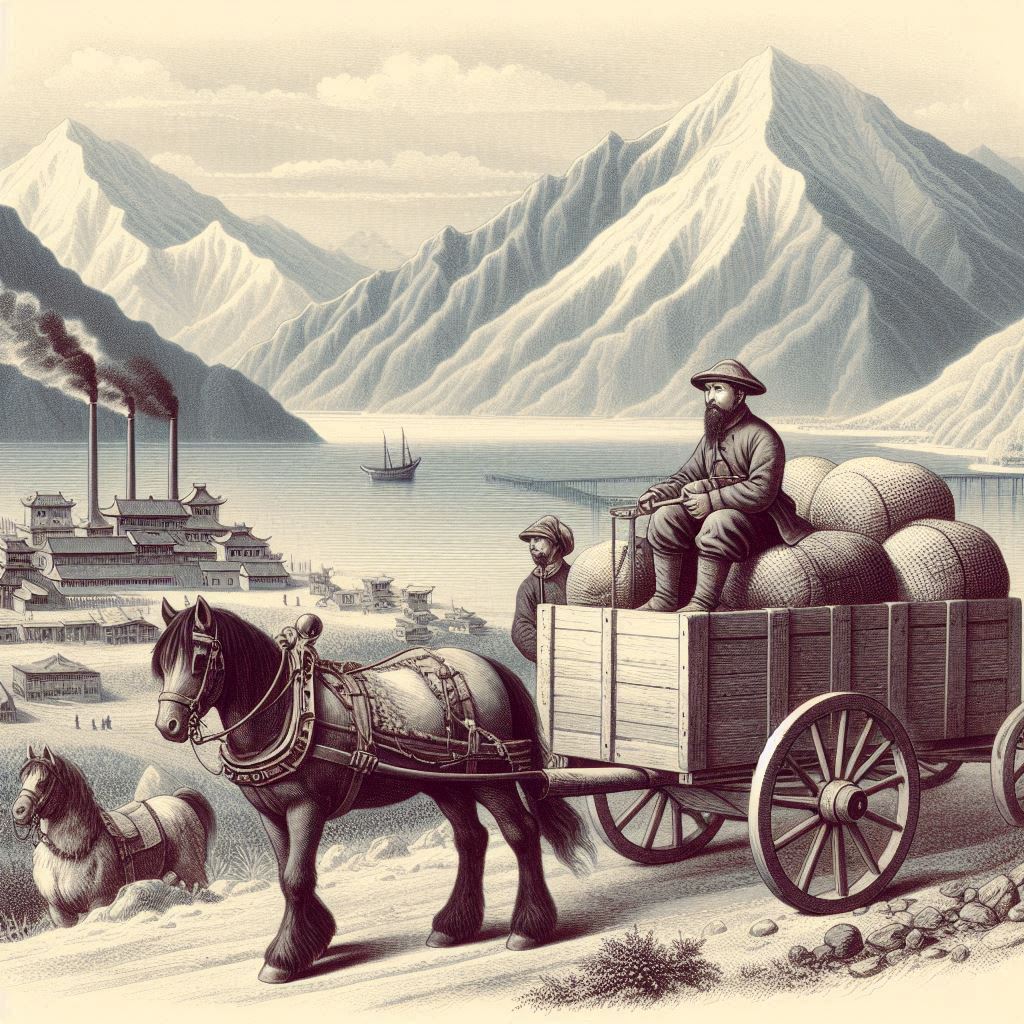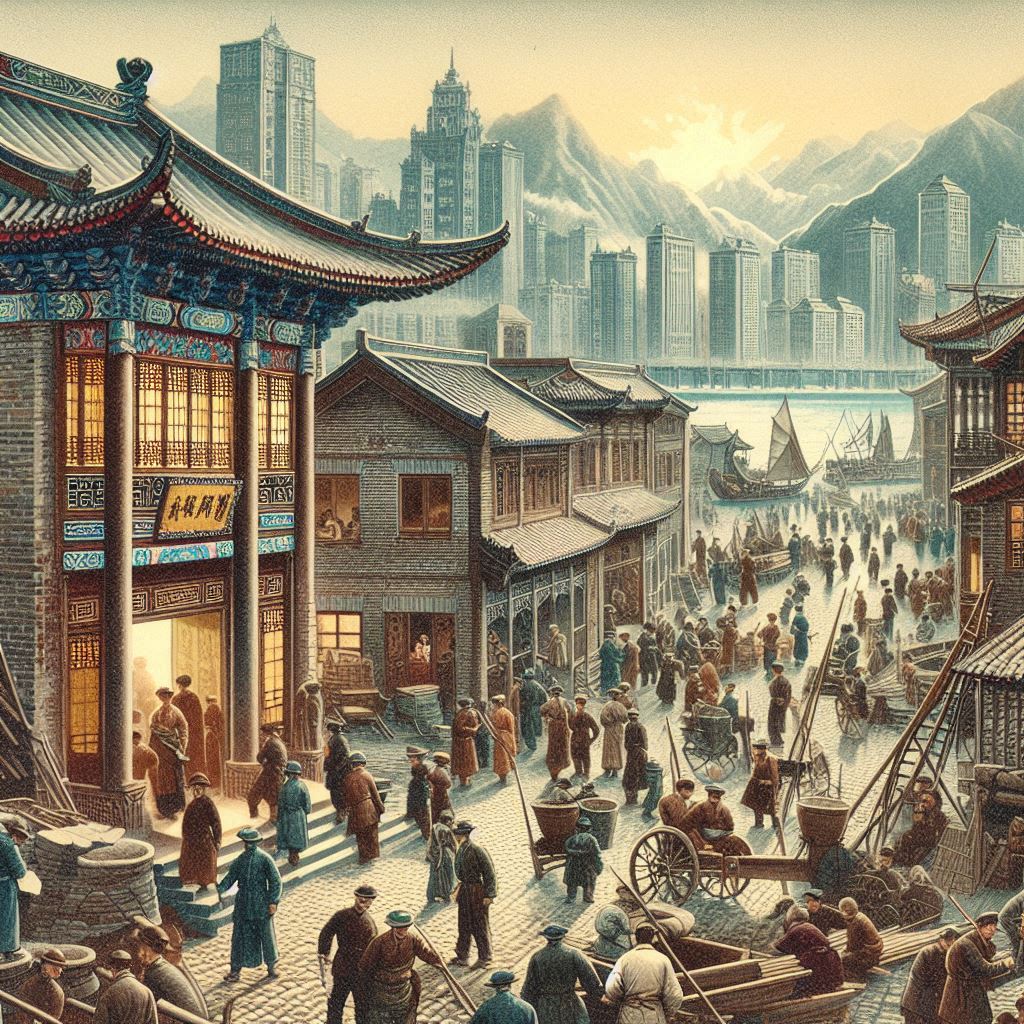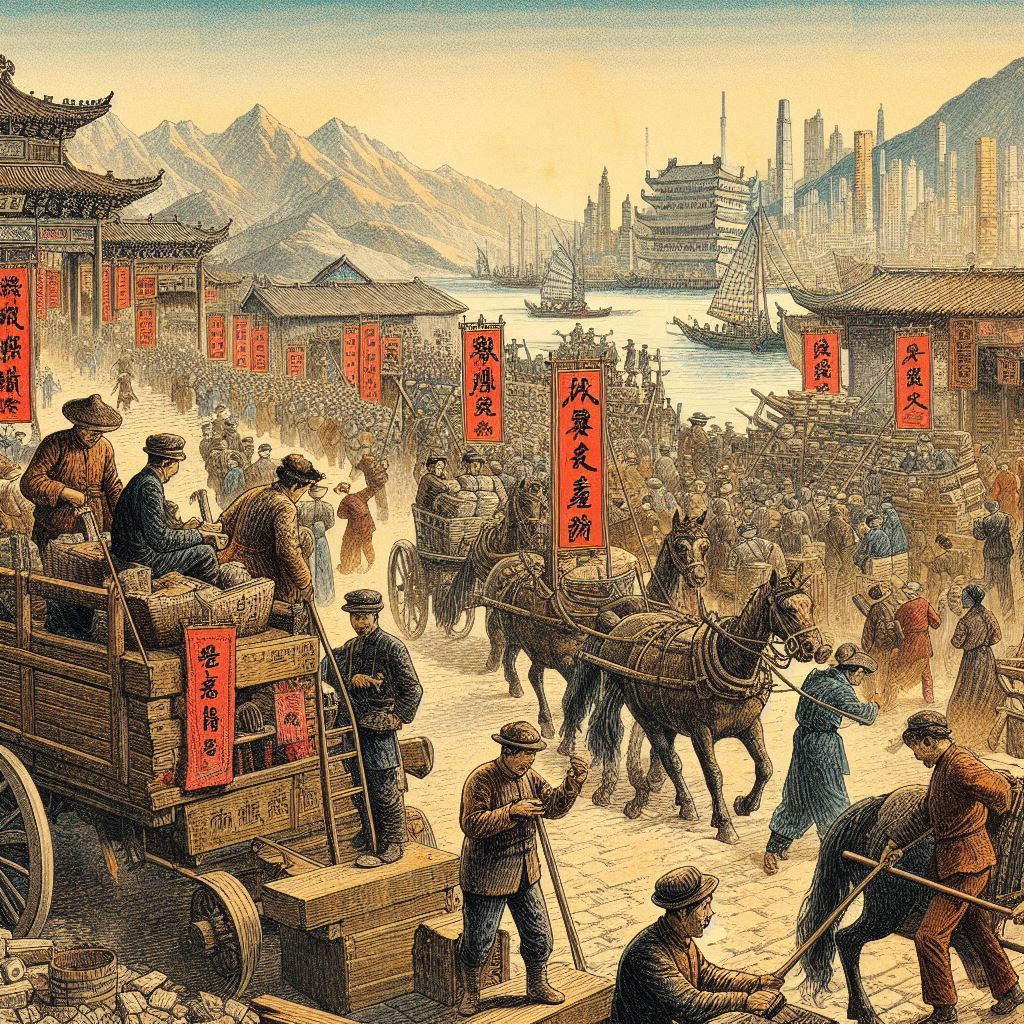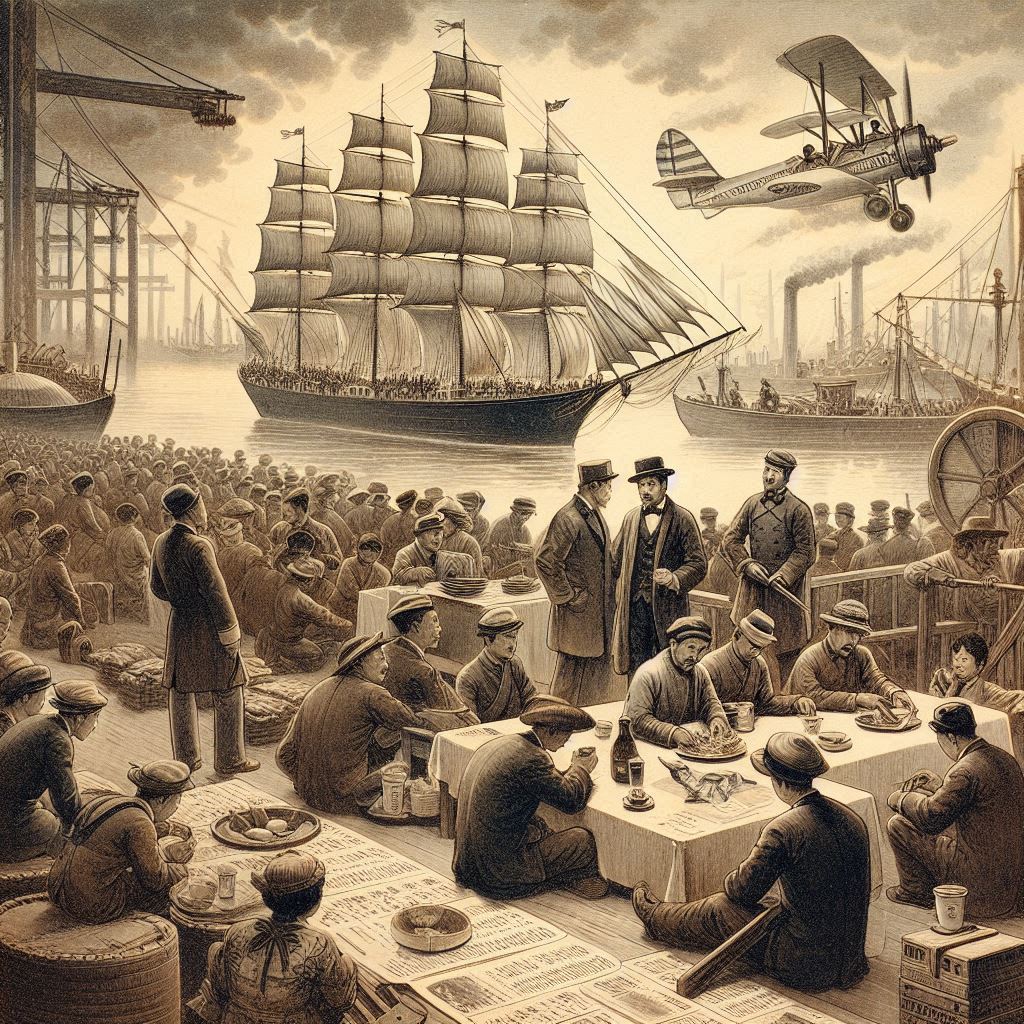“秦腔窮”:從歷史貶義到現代挑釁的跨文化現象
最近,網絡上興起一個有趣又耐人尋味的詞——「秦腔窮」。這個詞原本帶有明顯貶義的歷史色彩,但如今卻在敘利亞與中東地區變成一些當地年輕人挑釁中國人的口頭禪。這種現象既令人感到荒誕,也引發我們對跨文化交流的深層思考:歷史遺留的文化符號如何在全球化的背景下重新活化?又應該如何應對這樣的文化衝突?
「秦腔窮」這個詞實際上是清朝時期海外華工所面臨歧視的歷史遺留物。清朝末年,中國國力衰弱,大量底層勞工為了生計被迫流落海外。他們多從事低端、辛苦的工作,被當地人視為社會底層,甚至不屑一顧。這些勞工被嘲諷為「清長蟲」或「清朝蟲」,意指他們像蟲子一樣卑微、不值一提。
隨著時間推移,這些貶義詞經過音變和地域化,演變成如今的「秦腔窮」。本來,這種侮辱性的稱呼應該隨著歷史的遠去而被人遺忘,但讓人意外的是,這個詞彙竟然在敘利亞的某些地區甚至是中東頑強地存活下來,甚至成一些年輕人日常交流中用來「親切」調侃中國人的詞語。
在敘利亞當地,尤其是一些城市裡,年輕人常常用「秦腔窮」來喊中國人。有時候這個詞是帶著善意的戲謔,而更多時候,它帶著挑釁甚至歧視的意味。這種現象令人不禁感到疑惑:為什麼一個帶有侮辱性的歷史詞語,能在異域他鄉的文化中長期存續,甚至被新一代所使用?
敘利亞的現代社會背景或許能為此提供一些線索。在內戰與經濟困境的陰影下,國內社會矛盾深重,年輕一代的生活壓力與焦慮感倍增。在這樣的背景下,外來者(尤其是中國人)的存在成為一種無意識的情感宣洩目標。再加上中國在全球經濟版圖中的崛起,有些人可能因文化認同差異或競爭心理,而對中國人抱有某種負面情緒,這為「秦腔窮」一詞的復甦提供了土壤。
「秦腔窮」的故事是全球化浪潮中文化碰撞的一個縮影。它提醒我們,在不同文化背景中,一些符號可能會被重新解讀甚至扭曲。對於當事人來說,這種現象既可能帶來不適,也可能引發更深層次的文化對話。
語言與符號的變遷:語言是一種活的文化現象,一個詞的含義可能因地域、時間和人群的不同而發生變化。對敘利亞年輕人來說,「秦腔窮」可能已經失去了它原有的歷史背景,而更多成為一種習慣性表達或文化標籤。
文化交流中的身份認同:在跨文化交流中,身份認同的差異往往是引發誤解或衝突的根源。「秦腔窮」的使用背後,或許反映當地對中國文化的刻板印象,甚至是某種錯誤的優越感。如何應對?
面對類似「秦腔窮」這樣的文化現象,需要理性應對:
文化溝通與教育:推動與敘之間的民間交流,讓更多人了解彼此的歷史與文化。當地人若了解「秦腔窮」的歷史淵源與侮辱性含義,可能會重新審視其使用方式。
多元文化的包容心態:面對誤解或挑釁時,冷靜思考背後的原因,而非採取過度反應,這有助於減少衝突,增進理解。
「秦腔窮」引發的衝突事件是一面多棱鏡,反映歷史、文化和全球化交織下的複雜圖景。這個現象雖然表面上看似荒唐,卻提醒我們:在快速變遷的世界裡,跨文化交流需要更多的理性、包容與智慧。唯有如此,才能將誤解轉化為理解,將碰撞轉化為融合。
"Qinqiang Poor": From Historical Derogation to Modern Provocation in Cross-Cultural Phenomena
Recently, a peculiar and thought-provoking term, “Qinqiang Poor”, has gained attention online. Originally carrying a distinctly derogatory historical undertone, this phrase has unexpectedly resurfaced in Syria and parts of the Middle East, becoming a catchphrase used by some local youths to provoke Chinese individuals. This phenomenon, while absurd on the surface, raises profound questions about cross-cultural interactions: How do historical cultural symbols get revitalized in the context of globalization? And how should we address such cultural conflicts?
The Historical Roots of “Qinqiang Poor”
The term “Qinqiang Poor” is a relic of the discrimination faced by overseas Chinese laborers during the late Qing Dynasty. At that time, China was in decline, and countless laborers were forced to seek work abroad to survive. These workers often took on low-status, grueling jobs, making them targets of disdain and mockery from the locals. They were derogatorily nicknamed “Qing Long Worms” or “Qing Dynasty Worms”, implying that they were as insignificant and contemptible as insects.
Over time, these pejorative terms underwent phonetic and regional transformations, evolving into the term “Qinqiang Poor” that we see today. Under normal circumstances, such derogatory labels would fade into obscurity with the passage of time. However, surprisingly, this term has not only survived but has thrived in certain parts of Syria and the Middle East. In these regions, it is now used casually, sometimes as a seemingly “friendly” tease toward Chinese people, though more often with a tone of provocation or disdain.
The Syrian Context of “Qinqiang Poor”
In Syrian cities, it is not uncommon for young people to address Chinese individuals as “Qinqiang Poor.” While the phrase is occasionally used in jest, it more frequently carries a hint of hostility or ridicule. This curious phenomenon prompts the question: Why has a historically offensive term persisted and even found new life in a distant cultural context?
The social and economic backdrop of modern Syria may offer some clues. Decades of civil war and economic hardship have created deep societal divisions, while younger generations face increasing pressure and anxiety about their future. In such an environment, outsiders—particularly Chinese people—can inadvertently become targets of unconscious emotional venting. Furthermore, China’s rise on the global economic stage may exacerbate feelings of cultural misalignment or competitive tension, creating fertile ground for the revival of terms like “Qinqiang Poor.”
A Reflection of Cultural Collision in Globalization
The story of “Qinqiang Poor” is a microcosm of cultural collision in the era of globalization. It serves as a reminder that symbols can be reinterpreted or distorted when transplanted into different cultural contexts. For those directly affected, this phenomenon can be both uncomfortable and an opportunity to spark deeper cultural dialogues.
The Evolution of Language and Symbols:
Language is a living cultural phenomenon. The meaning of a term can shift depending on the region, era, and the people who use it. For Syrian youths, the phrase “Qinqiang Poor” may have largely lost its historical connotations and instead become a habitual expression or cultural marker.
Identity in Cross-Cultural Exchanges:
Identity differences are often at the heart of misunderstandings or conflicts in cross-cultural interactions. The use of “Qinqiang Poor” may reflect local stereotypes of Chinese culture or even a misguided sense of superiority.
How to Respond?
Faced with phenomena like “Qinqiang Poor,” it is crucial to approach the situation with rationality and strategy:
Promote Cultural Communication and Education:
Encouraging grassroots exchanges between China and Syria can help foster mutual understanding of each other’s histories and cultures. If local people become aware of the term’s historical origins and its offensive implications, they might reconsider its usage.
Adopt an Inclusive Attitude Toward Cultural Diversity:
When encountering misunderstanding or provocation, it is important to remain calm and reflect on the underlying causes rather than react impulsively. This approach can reduce conflict and enhance mutual understanding.
Build Cultural Confidence:
As China continues to rise on the global stage, cultural confidence must accompany its economic and political growth. Approaching such challenges with openness and confidence can not only neutralize the impact of discrimination but also earn greater respect and recognition.
Conclusion
The controversy surrounding “Qinqiang Poor” serves as a prism, reflecting the complex interplay of history, culture, and globalization. While this phenomenon may seem absurd on the surface, it underscores the importance of fostering reason, tolerance, and wisdom in cross-cultural exchanges. Only by doing so can we transform misunderstanding into understanding and cultural collisions into meaningful integration.




照片:DALLE3
- 1
- 2
- 3
- 4
